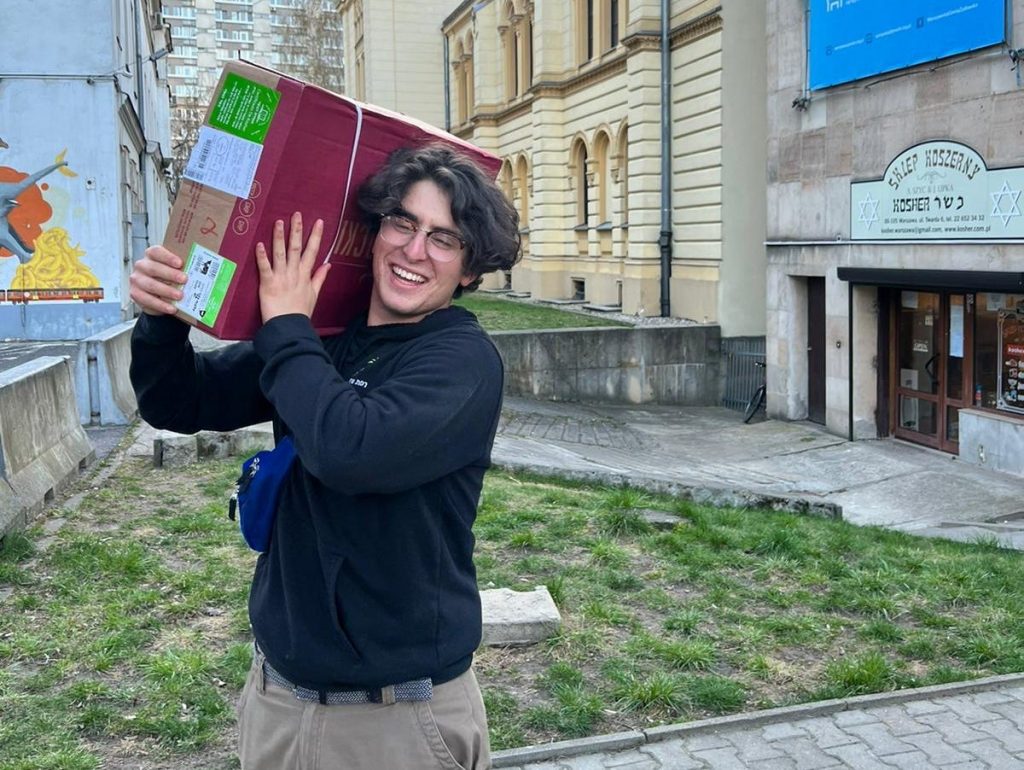- Many Ukrainians are observing Passover this year after embarking on their own exodus.
- Refugees will observe the "Festival of Freedom" at seders around the world.
- "The seder is always about looking to the future with hope," a Chabad member in Odesa told Insider.
"Why is this night different from all other nights?"
That Passover refrain, recited by Jews around the world as the eight-day holiday commences on Friday, deeply resonates with Yonah Bookstein.
The Los Angeles rabbi normally spends Passover hosting a large seder, the ceremonial meal that commemorates the exodus of the Jewish people from Egypt, for his local community.
This year, however, the celebration of liberation takes on more meaning. And Bookstein will have a change of scenery: Along with his wife and two of his children, he's hosting a seder in Lublin, Poland, for dozens of Ukrainian refugees he's never met before.
"These people can't be at their Pesach table — their tables are gone. They fled with whatever they could carry," he told Insider through tears. "The least we can do is make sure they have a Passover they will never forget."
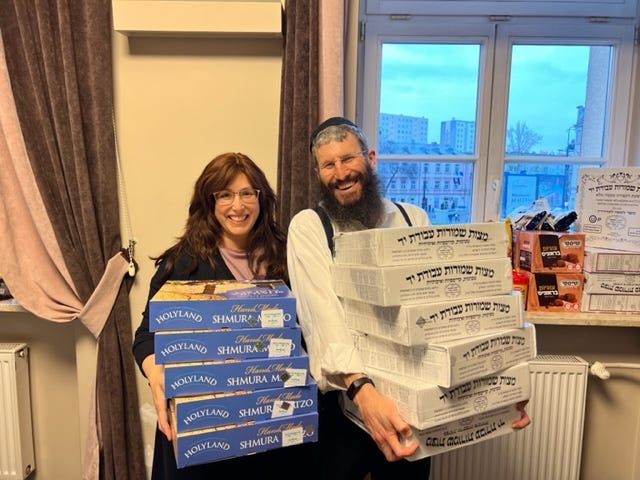
He's not sure what to expect from the refugees — mostly women, children, and elderly people — who survived a hell in which many men have been left behind. But he said he never thought twice about hosting a seder in Poland this year. It's the country where he and his wife, Rachel, spent four years in the 1990s helping revitalize the Jewish community, he said.
"Like everybody who saw what's going on, we have to pray, but we have to act," he said.
This year, Passover holds extra significance for many
The Haggadah, the book read during the seder that retells the story of the Exodus, when the Children of Israel went from bondage to freedom, offers a striking parallel to now.
"It's bittersweet, because the Jewish people, we wanted to get out of Egypt," the rabbi said. "The Ukrainians were driven out. But they're refugees as we were."
While many rejoice on the holiday, the rabbi knows not everyone can. "There's a bit of a cognitive dissonance — I'm sure everyone's very, very grateful they're out of harm's way," he said, addressing the highlight of the seder: drinking the customary four cups of wine while reclining in a chair as free people.
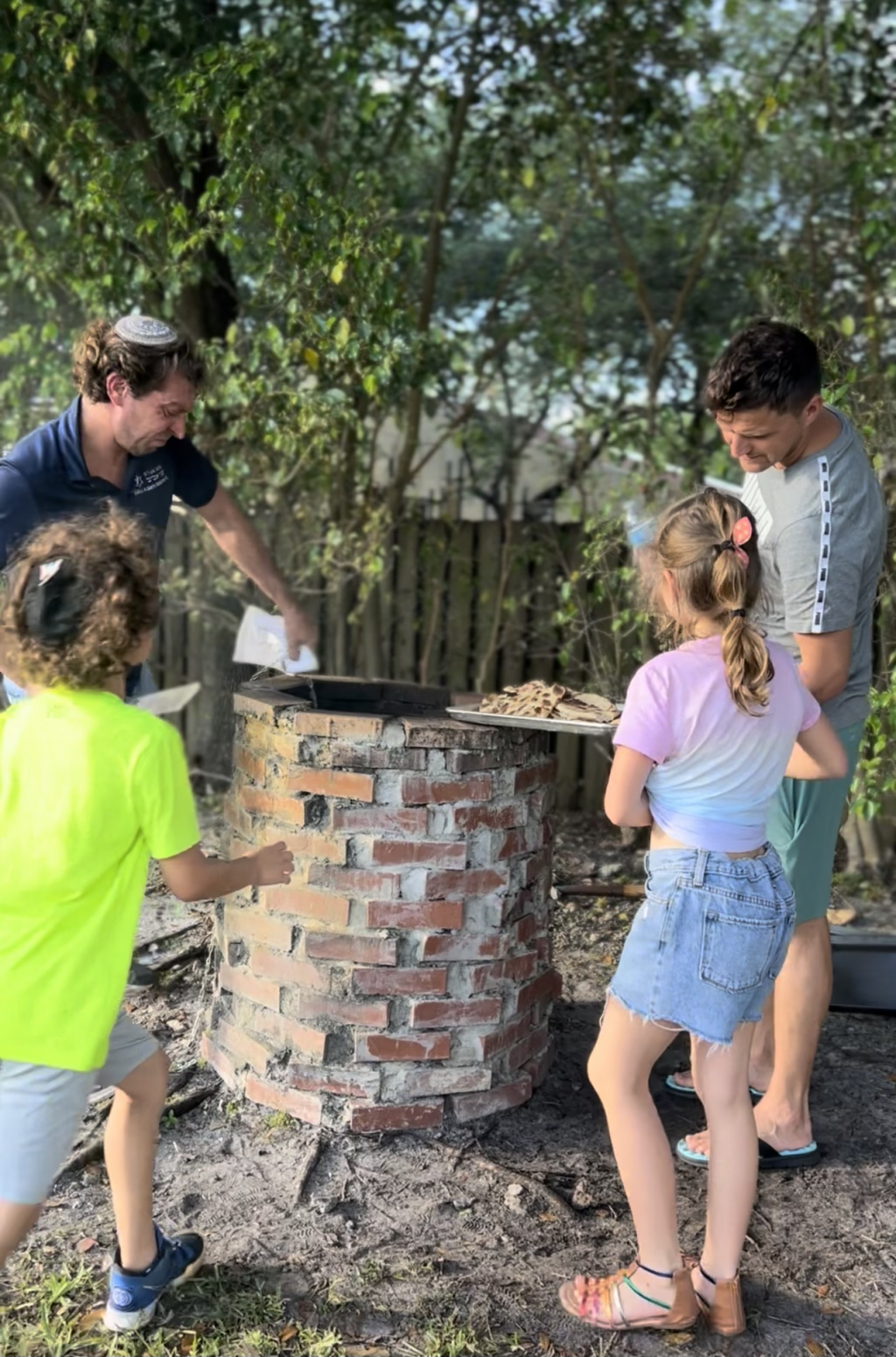
Still, it's an exodus no one asked for. "When you know you've escaped from such a mortal danger, that must be bittersweet as well," he added. "They're safe, but they know others aren't and their homes and communities have been devastated."
Bookstein's desire: "I want them to know that the Jewish world cares about them and is not going to abandon them."
The holiday is a poignant reminder of liberation
"The whole goal of Pesach is every person is obligated to see themselves as if they left Egypt," said Adam Watstein, a rabbi and married father of three from Weston, Florida, who's been hosting the Sibiryakovas, a non-Jewish Ukrainian family of five, in his home.
Life in sunny South Florida is a world away from the air-raid sirens and bomb shelters that upended the Sibiryakovas' lives in Ukraine.
"Our places may be destroyed, but never our trust in a free and independent life will end," Sergey Sibiryakova, who along with his wife, Anastasia, and three children, are staying with the Watsteins, told CBS Miami last month. Both families are looking forward to the seder, which commemorates the theme of freedom.
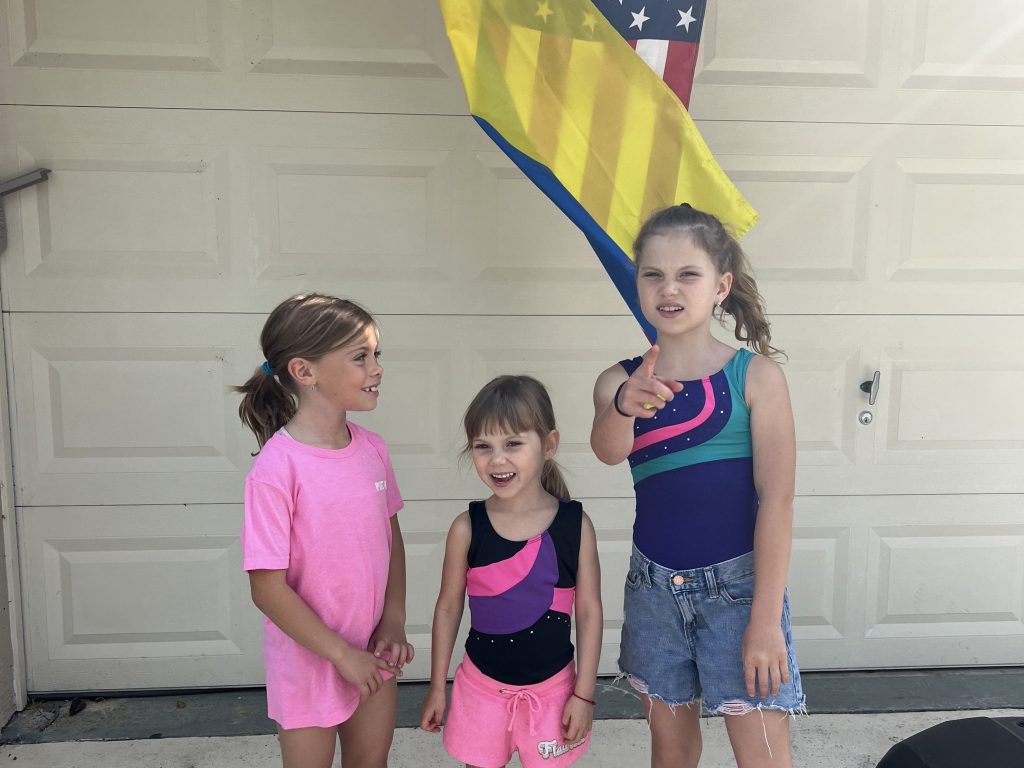
"The Haggadah is a mirror — and you're supposed to see yourself in the story," Watstein, who presides over Temple B'nai Aviv, said.
The message of freedom hits close to home.
"All I have to do is look across the table," he said. Watstein's wife, Angelina, who fled Ukraine as a young child in 1981, has bridged the language barrier and given their guests a crash course in the intricacies of the Passover rules, which prohibit consuming bread products and other foods.
During the kids' preschool seder on Wednesday, the Sibiryakovas internalized the meaning of the holiday. "Sergey comes home singing 'Dayenu,'" Watstein said, referring to the classic Passover song. "They understand the story, and they understand that in many ways, they are the story."
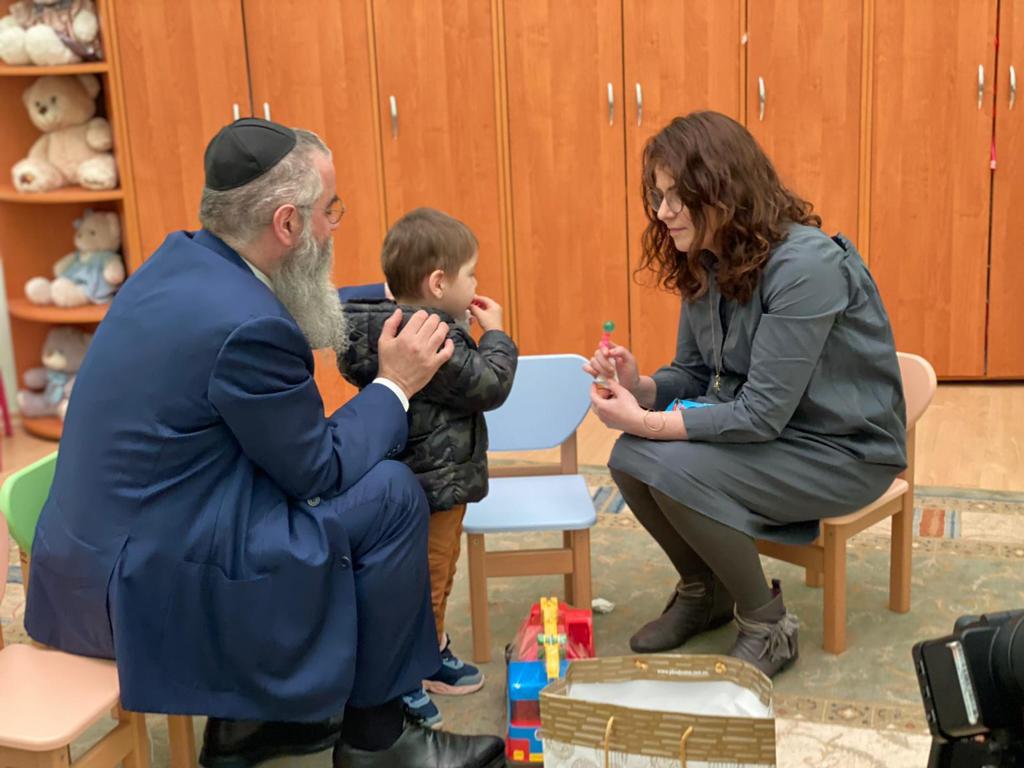
A Chabad spokesperson estimated on Wednesday that about 20% of the 350,000 or so Jews who were in Ukraine before the war began had left the country. Many still there will be scrambling for safety and some semblance of a traditional seder.
Even through the bleakness, there's hope
Chaya Wolff and her husband, Rabbi Avraham Wolff, operate several Chabad congregations, schools, community centers, and an orphanage with dozens of children in Odesa. They brought the children to safety in Berlin but returned to war-torn Ukraine in time for Passover so they could provide seders and assistance for their Odesa community.
The Wolffs said the Lubavitcher Rebbe, Menachem Mendel Schneerson, who was born in 1902 in Mykolaiv, Ukraine, always espoused an essential lesson. "He taught that we always need to be positive — not just have a belief but a trust in God," Chaya, whose city has been rocked by shellings and explosions, said. "Even though there's a war going on, we have a hope and trust that it's going to be good."
"When we left Egypt, the Exodus, in one moment everything turned around," Chaya added. "That's what the people in our community are holding on to, that hope that very quickly our situation will turn around to one of possibility. The seder is always about looking to the future with hope."
